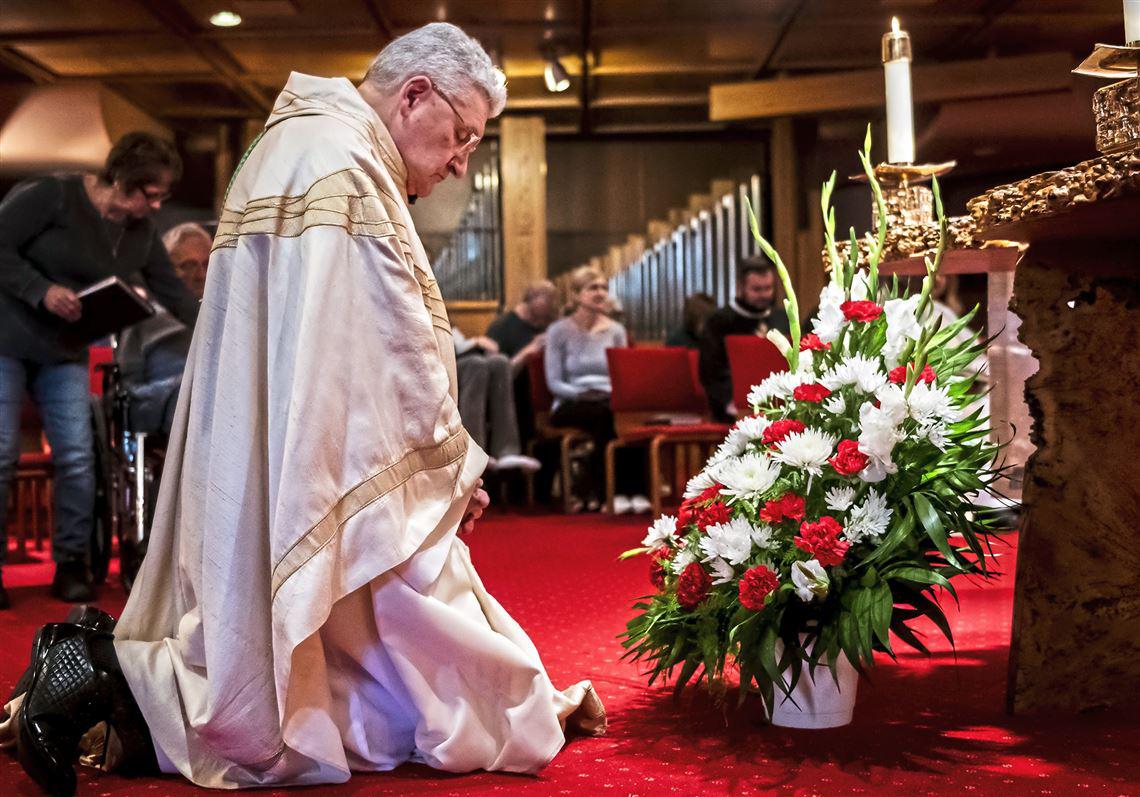|
Zubik letter responds to abuse crisis
By Peter Smith
Bishop David Zubik is pledging to provide additional support for victims of sexual abuse by priests, to put more eyes on how the Diocese of Pittsburgh handles abuse allegations, and to provide a full accounting of how much it has paid to victims, lawyers and accused priests. Those are some of the highlights of a pastoral letter released Monday by Bishop Zubik in response to “listening sessions” held late last year at various Roman Catholic parishes following a 2018 grand jury report into the history of sexual abuse in the diocese. “Our wounds are still open,” Bishop Zubik said in the letter, dated March 6 for Ash Wednesday, the start of the penitential season of Lent. “It is impossible to undo the heinous actions committed in the past. So we must turn to God and, with His divine love and guidance, do everything possible to foster healing and to restore trust.” In his letter, Bishop Zubik is pledging that by July, the diocese will publish the total sum of payments made to victims of sexual abuse since 1991, without naming the recipients. Bishop Zubik said that’s the earliest date of such a settlement. He also pledged to account for legal fees related to abuse as well as the subsistence salaries and other compensation the diocese has paid, as dictated by church law, to priests removed from ministry due to abuse. By 2020, the diocese will also account for a current, ongoing round of compensation payments. Bishop Zubik, who held four listening sessions around the diocese, acknowledged the anguished and angry statements by many, which included some calls for his resignation and others for him to stay and “continue to lead with a pastoral heart.” While he did not directly respond to such calls in the letter, Bishop Zubik said in an interview he has prayed about the matter and is staying on the job. “I’m going to give it my best shot,” said Bishop Zubik, who was appointed by Pope Benedict XVI in 2007 to head the Pittsburgh Diocese. At the same time, “The church has to change,” leading to the reforms he has pledged. The bishop said survivors of clergy sexual abuse “carry the deepest wounds in the church.” He quoted one victim who said a priest assaulted “my whole humanity, my whole being, to my soul.” The church owes its “admiration and appreciation” for those survivors who came forward and “called the church to account,” Bishop Zubik wrote. He also acknowledged the reverberating impact of the abuse on Catholics themselves and the credibility of church leadership. And he paid tribute to innocent priests who have borne anger and even insults “simply because of your priestly attire.” “You are being called to serve in extremely challenging times when the very institution of the priesthood is looked upon as suspect,” Bishop Zubik wrote, thanking them for serving “the church with integrity.” The grand jury in August reported abuse claims against more than 90 priests in the Diocese of Pittsburgh over the past seven decades, most of which occurred before 1990. It was the largest of six Pennsylvania dioceses investigated by the grand jury. In his letter, Bishop Zubik referred to the diocese’s history over the past three decades of establishing policies, training and a review board to respond to the abuse. He is pledging further steps. Among the changes:
“At the listening session at St. Paul Cathedral, I realized that it was the first time I had gone to the cathedral as bishop to listen, rather than to speak,” he said. The letter is titled “The Church Healing,” and its cover is illustrated with an image of Jesus wearing a crown of thorns and reaching out with hands bearing the wounds of crucifixion. The title echoes those of the bishop’s previous three pastoral letters: “The Church Alive,” also the theme of the diocese’s ongoing parish reorganizations; “The Church Living” and “The Church Evangelizing.” Jim VanSickle of Coraopolis, an advocate for fellow survivors of abuse, had a mixed reaction to the letter. “I appreciate that the bishop put some thought in this and is creating different bodies” to enact reforms and support victims, he said. But “there is no reconciliation without truth,” and he called for the diocese to open its files and account for its handling of cases. He also called for the church, which has opposed reforms of the statute of limitations that would open it to lawsuits over long-ago abuse, to shape legislation it could support and that would enable victims who want a day in court. Survivors may be angry at the church and not want to take part in its support groups. But many survivors are “not against the church,” he said, calling on the bishop to “make sure there are survivors on some of the commissions he’s creating.” The local group Catholics for Change in Our Church, which organized a petition signed by more than 1,000 people calling for greater lay leadership and outreach to victims, said in a statement: “Bishop Zubik seems to have genuinely listened," the group said. "He acknowledges the depth of people’s wounds." But the group added: “Only time will reveal if not only Bishop Zubik, but all employees of the diocese, will embrace the humility required to truly serve and make the substantive changes needed to dismantle the clericalism endemic in diocesan structures. And laity must be given real authority ... and to not function in just an advisory capacity under the auspices of the diocese." The advocacy group Survivors Network of those Abused by Priests discounted Bishop Zubik’s initiatives, restating its call for his resignation and saying victims would not “want to go to the place for healing that has caused them harm.” Contact: petersmith@post-gazette.com
|
.
Any original material on these pages is copyright © BishopAccountability.org 2004. Reproduce freely with attribution.
